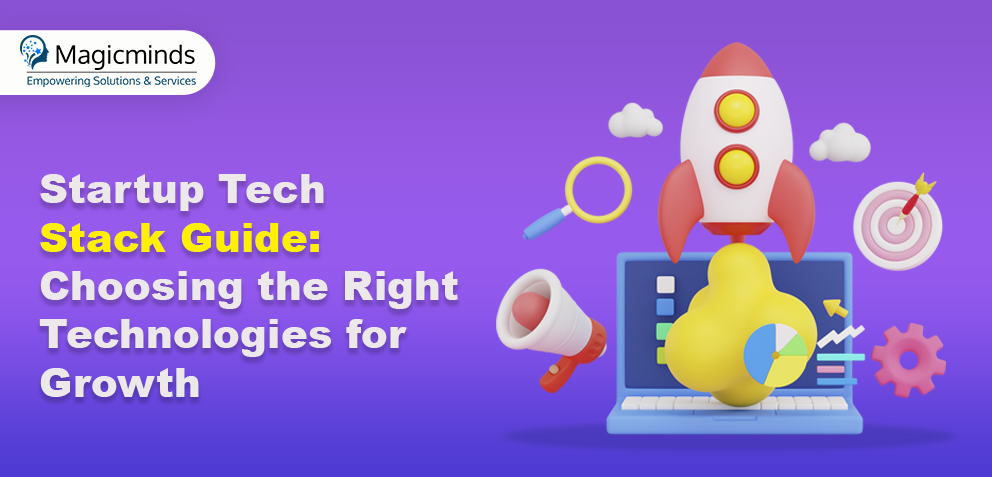Custom Software vs. Off-the-Shelf: What Should Startups Choose?

 Stay In-the-loop
Stay In-the-loop
Get fresh tech & marketing insights delivered right to your inbox.
Share this Article
Tags
Category
- .Net Developer
- Adtech
- Android App Development
- API
- App Store
- Artificial Intelligence
- Blockchain Development
- Chatbot Development
- CMS Development
- Cybersecurity
- Data Security
- Dedicated Developers
- Digital Marketing
- Ecommerce Development
- Edtech
- Fintech
- Flutter app development
- Full Stack Development
- Healthcare Tech
- Hybrid App Development
- iOS App Development
- IT Project Management
- JavaScript development
- Laravel Development
- Magento Development
- MEAN Stack Developer
- MERN Stack Developer
- Mobile App
- Mobile App Development
- Nodejs Development
- Progressive Web Application
- python development
- QA and testing
- Quality Engineering
- React Native
- SaaS
- SEO
- Shopify Development
- Software Development
- Software Outsourcing
- Staff Augmentation
- UI/UX Development
- Web analytics tools
- Wordpress Development
For most startups at the critical phase of the lifecycle, selecting a software solution can heavily influence the direction of the business. The debate between custom software development and off-the-shelf solutions for startups is significant, and there are valid reasons for this. There are valid reasons for this. Each route presents its set of benefits and challenges to work through. In this article, we will discuss the question of custom software development versus off-the-shelf solutions for startups and which path they should take. We will also analyze the fundamentals, evaluate costs alongside scalability, and, through actionable analysis, guide your decision.
How do you Distinguish Custom Software from Off-the-Shelf Solutions?
Custom software refers to applications specifically designed and developed to meet the unique needs of an individual business or startup. Imagine it as a custom-made suit, with every feature and function tailored to your startup’s workflows, goals, and vision. Off-the-shelf solutions, on the other hand, are ready-made products developed for a broad market with pre-built features. They’re like buying a standard suit from a store—you get what’s available, with options to adjust, but not to redesign.
Pros and Cons for Startups
Check out the significant pros and cons related to startups below:
Advantages of Off-the-Shelf Solutions
- Quick Deployment: Most off-the-shelf products, like software, are pre-developed and require little to no modification. They are incredibly simple to set up and can be ready for use within just days, or even hours.
- Lower Initial Cost: After initial purchases are made, businesses and startups can license through an average fee of only 200 per user per month. The budget-friendly nature is particularly noticeable in early-stage startups.
- Proven Reliability: With hundreds, or in some cases even thousands, of users, these solutions are generally very stable and well supported by countless services.
Custom Software Development for Startups
Build, Launch, and Scale with Magicminds' Expertise.
Disadvantages of Off-the-Shelf Solutions
- Limited Customization: One of the biggest factors is that processes have to fit the software instead of being able to change with the users adapting to it.
- Scalability Issues: An important detail to note is that many of these products will generally be left behind as you advance and overcome them throughout your journey.
- Hidden Costs: Integration fees generously combined with user caps and add-ons can increase your total costs immensely.
Advantages of Custom Software
- Tailored Fit: Every possible feature provided for the users is aligned with the goals of the business.
- Competitive Edge: Having proprietary tools to set your brand apart from the others is extremely useful in the market.
- Scalable Architecture: Set seamlessly alongside your startup to grow incredibly along with it.
Disadvantages of Custom Software
- Higher Upfront Investment: Businesses looking to at least start their projects of custom software should expect development costs to start around $30,000, with adjustments being added to the overall cost depending on complexity, increasing from there.
- Long Time to Launch: Design, development, and testing are incredibly long endeavors to focus on. You should be expecting several months’ worth of them.
We require a team that is equally competent to provide regular updates and constant support, given the staggering number of modifications we provide.
Cost and Scalability Comparison
When it comes to cost, off-the-shelf solutions have a clear short-term advantage. For example, a team of 10 using a SaaS CRM at $50 per user/month spends $6,000 annually. Compare this expenditure to a basic custom CRM, which might cost $50,000 to develop. However, as startups scale, licensing fees and integration costs for off-the-shelf software can skyrocket. According to Gartner, 60% of SaaS buyers experience unplanned costs due to scaling or integrating new features.
Custom software, while demanding a larger initial investment, offers predictable long-term costs. You own the code, control the roadmap, and avoid per-user fees. Plus, studies indicate that custom platforms can reduce operational inefficiencies by up to 30%, translating into real savings as you grow.
When Is Custom Software a Better Fit?
Services like custom software development are required in the following strategic situations:
- When workflows are eccentric, uncommon, and cannot be supported through general solutions.
- In case there is a need to integrate with particular or old systems.
- When data security and compliance are particularly important (e.g., HIPAA, GDPR).
- This applies when there is an intention to scale rapidly or to undergo drastic changes in business modeling.
- When the product being offered is in itself software (consider SaaS startups).
In case the value proposition of your startup includes a particular digital experience, then custom software goes beyond a perk and becomes a necessity.
Magicminds’ Experience Building Custom Platforms
At Magicminds, we’ve worked closely with startups in eclectic industries like fintech, healthtech, logistics, etc., to build innovative, growth-enhancing frameworks. A more recent example includes aiding a health-tech startup with the automation of patient intake processes, which streamlined onboarding by 40% and ensured compliance with HIPAA requirements from the start. Following comprehensive discovery with clients, we combine agile development and scalable architecture to build custom platforms that adapt to changes in business direction. Clients regularly report improved operational efficiency, enhanced user satisfaction, and quicker market differentiation.
Conclusion
The first step toward better software solutions for your needs is educating yourself and considering industry leaders. Startups looking for low cost and speed would benefit from off-the-shelf solutions. When startups choose between custom software development tailored to their specific needs and purchasing a pre-made solution, they often find that there is no clear winner. Those focusing on scalability, differentiation, and software enhancement, catering to ROI, would find value in Magicmind’s custom software development vs. off-the-shelf for startups’ customized solutions.
For most startups at the critical phase of the lifecycle, selecting a software solution can heavily influence the direction of the business. The debate between custom software development and off-the-shelf solutions for startups is significant, and there are valid reasons for this. There are valid reasons for this. Each route presents its set of benefits and challenges to work through. In this article, we will discuss the question of custom software development versus off-the-shelf solutions for startups and which path they should take. We will also analyze the fundamentals, evaluate costs alongside scalability, and, through actionable analysis, guide your decision.
How do you Distinguish Custom Software from Off-the-Shelf Solutions?
Custom software refers to applications specifically designed and developed to meet the unique needs of an individual business or startup. Imagine it as a custom-made suit, with every feature and function tailored to your startup’s workflows, goals, and vision. Off-the-shelf solutions, on the other hand, are ready-made products developed for a broad market with pre-built features. They’re like buying a standard suit from a store—you get what’s available, with options to adjust, but not to redesign.
Pros and Cons for Startups
Check out the significant pros and cons related to startups below:
Advantages of Off-the-Shelf Solutions
- Quick Deployment: Most off-the-shelf products, like software, are pre-developed and require little to no modification. They are incredibly simple to set up and can be ready for use within just days, or even hours.
- Lower Initial Cost: After initial purchases are made, businesses and startups can license through an average fee of only 200 per user per month. The budget-friendly nature is particularly noticeable in early-stage startups.
- Proven Reliability: With hundreds, or in some cases even thousands, of users, these solutions are generally very stable and well supported by countless services.
Disadvantages of Off-the-Shelf Solutions
- Limited Customization: One of the biggest factors is that processes have to fit the software instead of being able to change with the users adapting to it.
- Scalability Issues: An important detail to note is that many of these products will generally be left behind as you advance and overcome them throughout your journey.
- Hidden Costs: Integration fees generously combined with user caps and add-ons can increase your total costs immensely.
Advantages of Custom Software
- Tailored Fit: Every possible feature provided for the users is aligned with the goals of the business.
- Competitive Edge: Having proprietary tools to set your brand apart from the others is extremely useful in the market.
- Scalable Architecture: Set seamlessly alongside your startup to grow incredibly along with it.
Disadvantages of Custom Software
- Higher Upfront Investment: Businesses looking to at least start their projects of custom software should expect development costs to start around $30,000, with adjustments being added to the overall cost depending on complexity, increasing from there.
- Long Time to Launch: Design, development, and testing are incredibly long endeavors to focus on. You should be expecting several months’ worth of them.
We require a team that is equally competent to provide regular updates and constant support, given the staggering number of modifications we provide.
Cost and Scalability Comparison
When it comes to cost, off-the-shelf solutions have a clear short-term advantage. For example, a team of 10 using a SaaS CRM at $50 per user/month spends $6,000 annually. Compare this expenditure to a basic custom CRM, which might cost $50,000 to develop. However, as startups scale, licensing fees and integration costs for off-the-shelf software can skyrocket. According to Gartner, 60% of SaaS buyers experience unplanned costs due to scaling or integrating new features.
Custom software, while demanding a larger initial investment, offers predictable long-term costs. You own the code, control the roadmap, and avoid per-user fees. Plus, studies indicate that custom platforms can reduce operational inefficiencies by up to 30%, translating into real savings as you grow.
When Is Custom Software a Better Fit?
Services like custom software development are required in the following strategic situations:
- When workflows are eccentric, uncommon, and cannot be supported through general solutions.
- In case there is a need to integrate with particular or old systems.
- When data security and compliance are particularly important (e.g., HIPAA, GDPR).
- This applies when there is an intention to scale rapidly or to undergo drastic changes in business modeling.
- When the product being offered is in itself software (consider SaaS startups).
In case the value proposition of your startup includes a particular digital experience, then custom software goes beyond a perk and becomes a necessity.
Magicminds’ Experience Building Custom Platforms
At Magicminds, we’ve worked closely with startups in eclectic industries like fintech, healthtech, logistics, etc., to build innovative, growth-enhancing frameworks. A more recent example includes aiding a health-tech startup with the automation of patient intake processes, which streamlined onboarding by 40% and ensured compliance with HIPAA requirements from the start. Following comprehensive discovery with clients, we combine agile development and scalable architecture to build custom platforms that adapt to changes in business direction. Clients regularly report improved operational efficiency, enhanced user satisfaction, and quicker market differentiation.
Conclusion
The first step toward better software solutions for your needs is educating yourself and considering industry leaders. Startups looking for low cost and speed would benefit from off-the-shelf solutions. When startups choose between custom software development tailored to their specific needs and purchasing a pre-made solution, they often find that there is no clear winner. Those focusing on scalability, differentiation, and software enhancement, catering to ROI, would find value in Magicmind’s custom software development vs. off-the-shelf for startups’ customized solutions.


